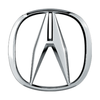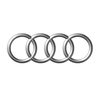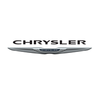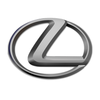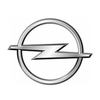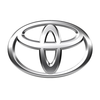petrol or diesel cars which is better
Ever since diesel vehicles became widely available and popular, there has been raging discussion what is the better fuel for your car. Over the years, diesel engines were reserved for heavy machinery, locomotives, boats or trucks, but in late ‘70s, they became popular as an option on passenger cars, mainly for their fuel economy. However, those early diesels were very rugged engines, dirty, slow and noisy but they showed potential. Over the following decades, manufacturers presented more and more advanced versions and progressed to the point where diesels are as good, powerful and smooth as petrol engines. So, the inevitable question is what‘s the better choice for your car; diesel or petrol and what are advantages and disadvantages of both fuels. Let‘s find out.
Diesel advantages:
Fuel economy:One of the biggest advantages of diesel engines is much better fuel economy: 25 to 30 percent better mileage than petrol cars. Diesel fuel contains more usable energy than petrol, so engines needs less to perform the same task. This, along with lower rpm range is key of diesel‘s economy.
Torque: Everybody who drove the car with a diesel engine can tell you that the torque in low rpm range was pretty surprising and that modern diesels have very convincing performance. Diesels are long stroke engines which limits the rpm redline, but delivers torque early and their pulling power is often pretty strong. That is why diesel engines are used in commercial vehicles, trains, trucks and even big ships.
Fewer parts: Diesel engines have no ignition system, spark plugs or distributors. The spontaneous combustion happens under big pressure and that is how the engine lights the diesel fuel. Fewer parts means less things that could go wrong and no need for adjusting ignition timing or changing the spark plugs.
Durability: Diesel engines, in some cases, are known for being extremely durable. You can often hear reports of older engines that traveled over 500,000 miles without rebuild and most of the trucks or vans you see on the road have similar mileage and are used daily without any problems. Rugged construction of the engine along with low rev range keeps a diesel engine from wearing down and it is great for long drives and professional users, like taxis, for example.
Diesel disadvantages:
Price: Diesel vehicles are always pricier than comparable gasoline models. The price difference is significant and it could change your mind when buying a car. Also, when selling the car on the used car market, in most cases, a diesel will not get you that difference back.
Expensive repairs: Compared to petrol engines, diesels need regular maintenance more often. Oil and filter changes intervals are sometimes half of what you would expect if you owned apetrol car. Breakdowns are also more expensive, especially clutches and gearboxes, fuel injectors and fuel pumps. Also, not all mechanics are trained and know how to service a diesel car.
Ecology: Diesel fuel is basically oil which means it far worse for environment than the refined petrol. Modern diesels are clean and equipped with advanced filter systems but as Volkswagen’s recent Diesel gate scandal showed, diesels are still quite dirty engines which hurt the environment and release alarmingly high amount of pollution.
Petrol advantages:
Smoother running: Compared to diesel engines, petrol engines are much quieter, smooth and nicer running units. If you are in the market for a performance car, petrol engines also produce better sound which is important if you are looking for the complete driving experience.
Lower price: Cars with petrol engines are cheaper than comparable diesels. Not only that they are cheaper to buy but also cheaper to maintain since they don’t use specific parts, oils, or other components. Potential malfunctioning and breakings are also cheaper to repair and more trained professionals are out there to help you out.
Power: Despite the fact that diesel engines have more torque, petrol engines generate more power and if you are looking for a hot hatch or a sports car, petrol is clearly the only reasonable choice.
Petrol disadvantages:
Fuel economy: The only real disadvantage of petrol engines is in fact fuel economy. Modern petrol engines equipped with latest electronic software cylinder deactivation systems and modern construction are surprisingly efficient, but still not as the comparable diesels. Since the price of diesel fuel and petrol is pretty much on the same level, trips to the petrol station will be less pleasant with a petrol car.
Conclusion:
As you can see, both the diesel and petrol engines have their advantages and disadvantages, but the trick is to know what the best choice for your needs is. If you plan to cover a lot of miles, drive long distances and use the vehicle for work purposes and carry stuff, then a diesel is the best choice for you. Higher base price will pay off in fuel bills and if you take good care of the car it will last for decades. However, if you are a regular car user who uses the vehicle for daily commute and weekend trips, then gasoline is the preferred choice. The higher fuel bill will be compensated with the lower price of the car and a petrol vehicle will better suit your driving style and transportation needs.


